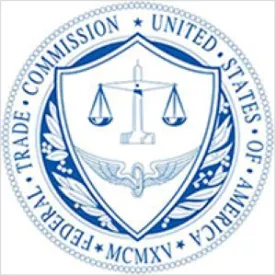On February 16, the Federal Trade Commission (FTC) hosted a public forum to examine its proposed rule to ban non-compete agreements. Non-compete clauses serve to protect a business’s trade secrets and confidential information, which makes such a ban a concern for many businesses. The comment period for this proposed rule ends on March 20, so businesses should consider voicing their concerns during this time. This article summarizes the remarks made during the public forum by the FTC, a panel discussion, and comments from the public.
The forum included a variety of opinions and statements, ranging from those in support of the ban to those calling out the FTC for unauthorized rulemaking. From the perspective of the FTC, non-compete agreements limit the mobility of workers and are an issue for both executives and entry-level workers. The agreements exist in nearly every industry and may prevent a worker from seeking or accepting another job within their industry. As such, the goal of the FTC with this proposed rule is to encourage economic growth through the mobility of workers.
The forum took comments from the public to hear opinions both in support of and against the proposed rule. Those in support of the rule included physicians, veterinarians, charter school teachers, and franchisees. The primary concern that physicians and other health professionals had was the control non-competes had over how and where they could use their license to practice. Additionally, under the current language of the proposed rule, franchise agreements are not included in the ban because the FTC views the relationship in those agreements to be different from that of the employer-employee relationship. Franchisees, however, want to be included in the rule in order to have a more “fair” contract.
On the contrary, many comments from the public were completely against the proposed rule. A representative from the US Chamber of Commerce stated that the FTC does not have any authority to promulgate such a rule, and noted that the FTC failed to address the issue concerning its authority. Additionally, many felt there was not enough evidence presented by the FTC to issue a total ban and that the rule was too broad. Those from the National Association of Truck Stop Owners and the Society of Independent Gasoline Marketers of America use non-competes for high-level executives; if this rule were to go into effect, these organizations, as well as others, would want the rule to apply prospectively and not retroactively. Under the current language of the rule, employers would have the burden of terminating agreements they have already entered into, as well as providing notice to those employees or former employees that the agreement is no longer valid.
Furthermore, the proposed rule only allows for non-competes to exist for owners who have at least a 25% interest in the business. Some commenters felt that the percentage was too high and that the restriction as-is would impede commercial transactions. An additional concern for those against the proposed rule is that the ban would reduce incentives for long-term investment and innovation for workers. Employers would be more reluctant to invest in and provide specialized training for workers if they felt there was a strong possibility that those workers may go work for a competitor.
The FTC, as well as supporters of the proposed rule, stated that trade secret law could be used to protect a business’s confidential information. However, those opposed to the rule stated that trade secret law does not sufficiently protect companies because the information has already been revealed by the time the law is triggered. Non-competes help to circumvent this problem by getting ahead of trade secret or confidential information being shared.
In sum, the participants present were split between being in support of or against the proposed rule. Regardless, the contractual dynamic between employees and employers will be impacted if this proposed rule goes into effect. Comments for the proposed rule are due by March 20, and the FTC encourages the public to continue to comment during this period.






 />i
/>i

